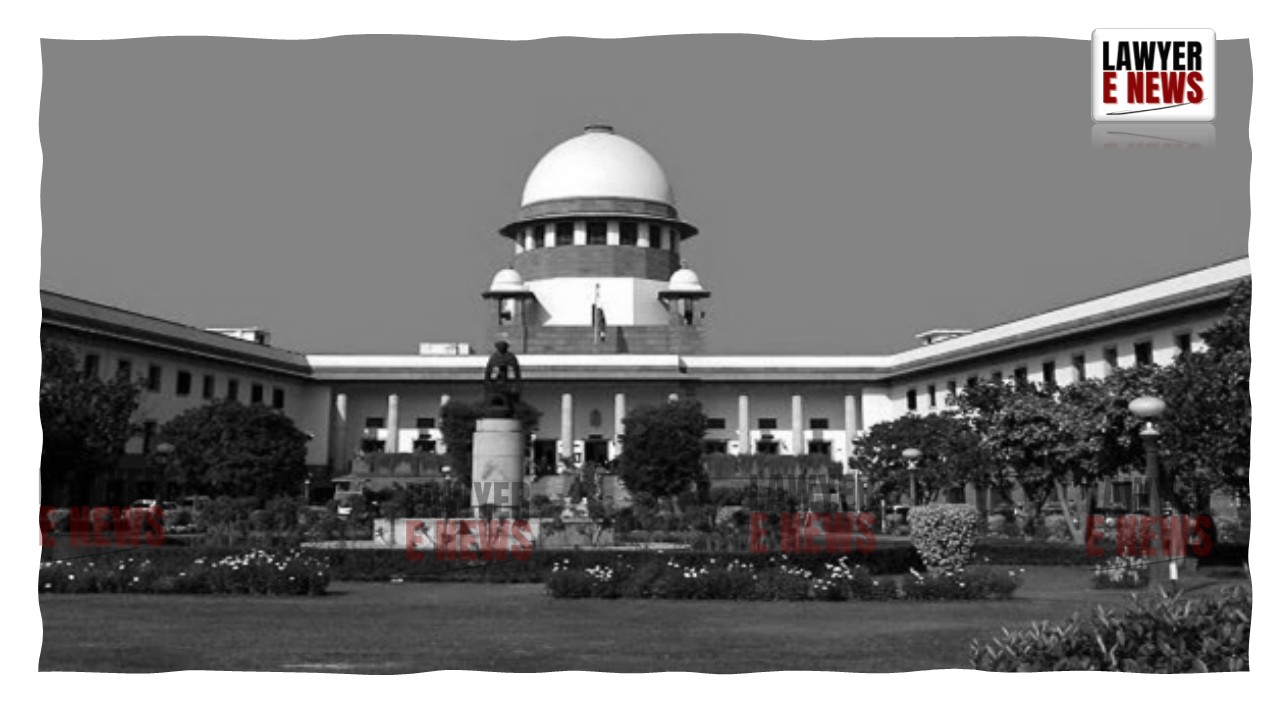-
by sayum
17 February 2026 8:32 AM



“Where the statute prescribes a fixed outer limit for filing appeals, delay beyond that cannot be condoned—equity cannot override legislative command.” - In a significant ruling Supreme Court of India held that the National Company Law Appellate Tribunal (NCLAT) has no jurisdiction to condone a delay beyond the 45-day period prescribed under Section 61(2) of the Insolvency and Bankruptcy Code, 2016. The Court firmly reiterated that once the prescribed limitation period of 30 days and the additional 15-day condonable period lapse, the right to appeal stands extinguished. It set aside the NCLAT’s order which had allowed an appeal filed on the 47th day—two days beyond the statutory limit.
Tata Steel Ltd., the appellant, was the successful resolution applicant for Rohit Ferro-Tech Ltd., whose resolution plan was approved by the Committee of Creditors and subsequently by the NCLT, Kolkata on April 7, 2022. Respondent No. 1, a minority shareholder of the corporate debtor, sought to challenge the resolution plan before the NCLAT under Section 61 of the IBC.
The appeal was electronically filed on May 23, 2022 and physically submitted the next day—making it the 46th and 47th day respectively from the date of the NCLT order. The respondent simultaneously filed an application seeking condonation of delay, which was allowed by the NCLAT. Tata Steel challenged this condonation before the Supreme Court, arguing that the NCLAT lacked statutory authority to entertain an appeal filed beyond the maximum permissible 45-day window.
Limitation under IBC
The Court reiterated the binding effect of Section 61(2) IBC which mandates that: “Every appeal under sub-section (1) shall be filed within thirty days before the National Company Law Appellate Tribunal:
Provided that the National Company Law Appellate Tribunal may allow an appeal to be filed after the expiry of the said period of thirty days if it is satisfied that there was sufficient cause for not filing the appeal but such period shall not exceed fifteen days.”
Analyzing the statutory structure, the Court observed: “The total permissible period for filing an appeal under Section 61(2) is 45 days—comprising 30 days as the prescribed period and an additional 15 days that may be condoned upon showing sufficient cause.”
The respondent attempted to invoke Section 4 of the Limitation Act, claiming that the 30-day period expired on a Sunday, thereby extending the deadline to Monday. But the Court firmly rejected this, stating: “The benefit of Section 4 of the Limitation Act is available only within the prescribed period—not beyond it. The condonable period of 15 days is not part of the 'prescribed period' under the Limitation Act and therefore cannot be extended by such provision.”
Referring to settled precedents, the Court affirmed: “Even a single day’s delay beyond the statutory outer limit is fatal to the maintainability of the appeal. The NCLAT being a creature of statute cannot assume powers not conferred upon it.”
The Bench criticized the NCLAT's attempt to apply equitable principles contrary to legislative mandate: “Allowing condonation in such cases would defeat the legislative intent and open the floodgates to belated and potentially frivolous petitions.”
In reference to V. Nagarajan v. SKS Ispat, the Court further clarified: “The limitation begins from the date of pronouncement of the order—not from when the party becomes aware of it or receives a copy. The appellant must act diligently and cannot wait indefinitely under the cover of procedural technicalities.”
On Whether Equity Could Rescue Delay Beyond Statutory Limit
The Supreme Court categorically held that: “The NCLAT has no jurisdiction to condone delay beyond the 45-day ceiling prescribed in Section 61(2). The appellate mechanism under IBC is strictly time-bound by design to preserve the speed and certainty of the insolvency resolution process.”
Even claims that the respondent had no access to essential documents or was unaware of the order were found irrelevant: “The Resolution Professional had disclosed the approval of the resolution plan to NSE and BSE on the very day of the NCLT order, within the prescribed time. The limitation period therefore commenced from April 7, 2022.”
The Court ultimately concluded that the appeal filed on May 24, 2022—on the 47th day—was time-barred: “Time is of the essence in statutory appeals, and the prescribed limitation period must be strictly adhered to. Even a single day's delay is fatal if the statute does not provide for its condonation.”
This judgment is a stern reminder that timelines under the IBC are sacrosanct. The Supreme Court’s insistence on strict adherence to the statutory limit of 45 days underscores the legislative intent behind fast-tracked insolvency resolution. The ruling ensures that equity does not become a means to circumvent a clear and rigid statutory scheme. With this decision, the Court has shut the door on delayed appeals masquerading as cases of bona fide mistake, reaffirming that finality in insolvency resolution is a cornerstone of the IBC framework.
Date of Decision: May 7, 2025
